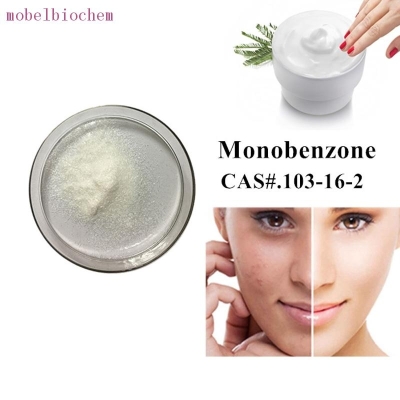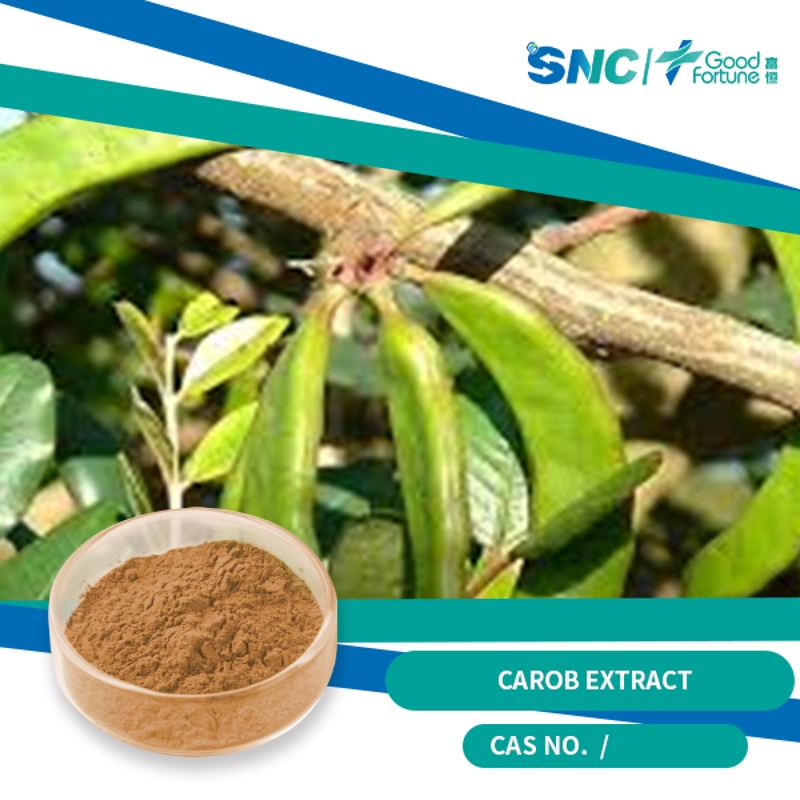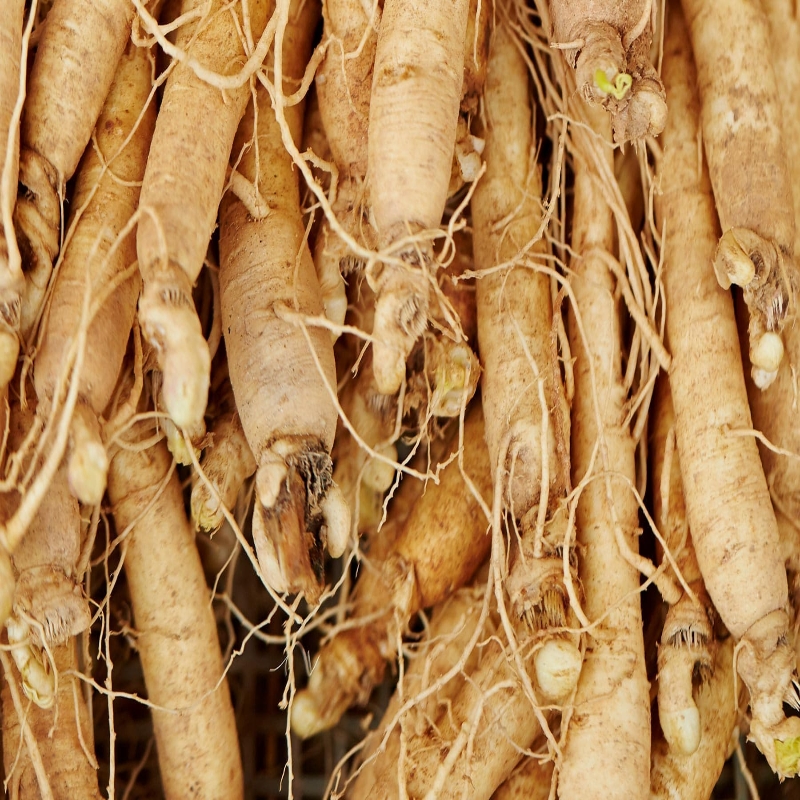Multinational enterprises tap new potential of Chinese herbal medicine
-
Last Update: 2010-03-26
-
Source: Internet
-
Author: User
Search more information of high quality chemicals, good prices and reliable suppliers, visit
www.echemi.com
Nestle, PepsiCo, Procter & Gamble, Unilever, L'Oreal and other companies are looking for new "sweet spots" in Chinese herbal medicine Multinational enterprises are trying to meet the growing concept of natural life of Chinese people - multinational enterprises tap new potential of Chinese herbal medicine Standing in front of the shelves lined with more than 70 kinds of Chinese herbal medicines, such as wolfberry and pangdahai, if not for the appearance difference, Olivier ballevre, a Swiss, is more like a doctor sitting in the hall of traditional Chinese medicine His actual identity is the general manager of Nestle R & D Center Co., Ltd Nestle foods of Switzerland built the second R & D center in China in Beijing in October 2008 Apart from such a "traditional Chinese medicine room", the names of each room are also "Lilac", "yam" and other traditional Chinese medicine names Bai Aoli's task is to combine Chinese food culture with modern biotechnology to find a new nutrition research method Nestle's move has its reasons Previously, Nestle has tasted the sweetness from the ancient red fruit of wolfberry "Meiji chicken jujube porridge" with Chinese wolfberry ingredients on the market in Malaysia is popular in the local market; the concentrated stewed soup of healthy Cordyceps sinensis launched in Singapore market is also recognized by consumers Therefore, Nestle believes that in China, the origin of Chinese herbal medicine, it is more likely to find inspiration from the traditional Chinese Pharmacopoeia As the head of R & D, Bai Aoli let his Chinese colleagues, including two doctors of traditional Chinese medicine, explore He did more integration work In the past six years, Bai Aoli has never known anything about traditional Chinese medicine, but now she enjoys a completely Chinese life Even when she drinks tea, she puts some medlar and chrysanthemum "If you make things like China, but they are not authentic inside, others feel like foreigners." He said very seriously What makes Bai Aoli happy is that it's not just the Chinese who agree with him now Last year, Indra K Nooyi, CEO of PepsiCo, visited China Afterwards, she was asked, "what did you learn from it in 10 days in China?" She replied, "I know traditional Chinese medicine in a university People began to follow the guidance of traditional Chinese medicine diet So the challenge is how to integrate traditional Chinese medicine with PepsiCo's products Multinational companies with strong interest in Chinese herbal medicines include P & G, Unilever, and L'Oreal, a cosmetics company In the view of these companies, with the upgrading of domestic consumption, the rise of the concept of advocating nature and "happy life", the health philosophy of emphasizing nature and nourishing food in traditional Chinese medicine is in line with the new social trend and life concept As long as the products are right, multinational companies that did not know Chinese herbal medicine before are likely to find magic formula in this new continent As a matter of fact, multinational companies began to try Chinese herbal medicines as early as 10 years ago After three years of intensive market research, P & G launched "run Yan" shampoo in 2000, which highlights the efficacy of herbs and black hair Nestle has also launched a series of "water conservation" drinks containing chrysanthemum, aloe and other ingredients But for various reasons, the attempt at that time did not succeed in the market Although this didn't make multinational companies give up the chance of looking for Chinese herbal medicine completely, most of them began to adjust their thinking and entered a long and temporary research and development period without schedule Until some Chinese enterprises succeed in the development of Chinese herbal medicine products with more rapid and agile speed, more accurate product positioning and marketing methods, multinational companies began to invest in this field again In 2005, Yunnan Baiyao entered the toothpaste market and was initially criticized However, with the positioning of "hemostasis", the sales volume increased from 30 million yuan to 1 billion yuan in four years Obviously, its price positioning also divided the cake of high-end market dominated by foreign companies such as P & G and Colgate "Traditional Chinese medicine family" overlord group, through advocating the concept of traditional Chinese medicine hair care, has obtained the market of men's shampoo and become another "black horse" in the field of daily chemical industry Wang Laoji's beverage has transformed traditional herbal tea into a fashionable drink suitable for all seasons According to the research report, "Wang Laoji" herbal tea began to enter the high-speed growth stage in 2007, with more than 800 million yuan It is estimated that by 2010, the production and sales of herbal tea will reach 60 million tons, becoming the formidable enemy of beverage giants Coca Cola and Pepsi Cola Multinational companies see new doors opening To sum up the successful experience of Chinese enterprises, in addition to relying on strong marketing and publicity, Chinese companies have a core weapon in their hands that is to have old brand or secret formula Liu Yugang, managing director of global strategy consulting company Molit group in China, believes that "multinational companies are now aware that" herbal medicine "is a high elimination rate issue, but once it is successful, it has huge market potential Besides product research and development, marketing strategy is also crucial to success How to be a latecomer, we need to seek differentiated positioning, and achieve effective emotional appeal in brand promotion " After finding the secret, multinational companies quickly copy the experience of local companies Not long ago, xiashilian brand of Unilever once again launched the shampoo containing ganoderma composition In its promotion, it repeatedly stressed the words "technology provider Nanjing Tongrentang Pharmaceutical Co., Ltd." It is understood that after many negotiations, the two sides have reached strategic cooperation in the field of brand development - Nanjing Tongrentang will serve as a technical consultant in Unilever's Chinese herbal anti hair loss shampoo and hair care products, providing corresponding guidance and services In addition to seeking the technical support of traditional Chinese medicine time-honored brands, it is also the difference positioning In the eyes of xiashilian brand, Ganoderma lucidum is a tonic in China, which can improve immunity and protect hair roots Using such elements can not repeat the thinking of local enterprises Because the overlord has occupied the male hair loss prevention market, but the product of xiashilian Ganoderma lucidum formula is the main feminization route Nestle's newly launched "Yiyang" high-end healthy liquid milk drink adds hawthorn, jujube and aloe into the product In Nestle's view, the dairy products that use Chinese herbal elements and are aimed at young consumers are still blank in the market If modern interpretation is only to rediscover opportunities in the path of Chinese enterprises, multinational companies are obviously not satisfied The lack of native pure blood makes multinational companies start to combine traditional Chinese herbal medicine and modern technology for further innovation and tap more market potential Yuxi, acquired by L'Oreal, is trying to make a difference In the Yuxi laboratory in Pudong, Shanghai, all kinds of natural medicinal plants gather here to show their skincare talents in front of research experts In traditional Chinese medicine, there are many prescriptions such as whitening, maintaining youth, nourishing the face and invigorating the Qi, from which Yuxi hopes to get inspiration But digestion and absorption of these prescriptions is just the beginning If interesting ingredients are found, modern methods are used to test the effectiveness of artificial skin cells Those who are particularly outstanding will become the main components of developing new products The Japanese skin care brand MTM developed in Japan is based on the traditional Chinese medicine "Siwu Decoction", which has been listed on Ganoderma lucidum, Angelica sinensis, Sichuan dome and Rehmannia glutinosa The price of the cream is not bad, but the sales of Hongkong's skin cream is over 50% of the expected value "The concept of herbal medicine is a trend, but it still needs a process to fully understand the mechanism of traditional Chinese medicine in the international market," said Qu Hangyan, founder For this reason, they specially put out "four things soup" in the shop for on-site education Herbalife, an international nutrition company, has also explored the health benefits of Chinese herbal medicines From the original soybean protein mixed drink to the aloe nutrition powder in 2008, Herbalife's global product quantity has exceeded 100 kinds, involving apple, orange, oats, locust flower, raspberry, blueberry and other fruits and vegetables Although Herbalife's foundation has a lot to do with oriental traditional Chinese medicine, when it comes to the relationship with traditional Chinese medicine, its chief scientist, Dr hernig, still uses "different" to define, "the Chinese herbal medicine we use is not used to cure diseases but to balance nutrition." Kedesai capsule is developed by natural Cordyceps sinensis in Yushu area of Qinghai Province, China Its active ingredient, Paecilomyces batmoth mycelium powder, is extracted to achieve the immune enhancement effect of Cordyceps sinensis Compared with the success of "traditional Chinese medicine" and "herbal" products of multinational daily chemical and FMCG companies, multinational pharmaceutical enterprises that have more direct relationship with traditional Chinese medicine are still exploring how to produce real star products In a more rigorous field, traditional Chinese medicine, modern medicine and botany theory are still two completely different understanding systems How to get through the boundary between the two is still the key to the emergence of a large number of TCM related products and the recognition of the international market.
This article is an English version of an article which is originally in the Chinese language on echemi.com and is provided for information purposes only.
This website makes no representation or warranty of any kind, either expressed or implied, as to the accuracy, completeness ownership or reliability of
the article or any translations thereof. If you have any concerns or complaints relating to the article, please send an email, providing a detailed
description of the concern or complaint, to
service@echemi.com. A staff member will contact you within 5 working days. Once verified, infringing content
will be removed immediately.







